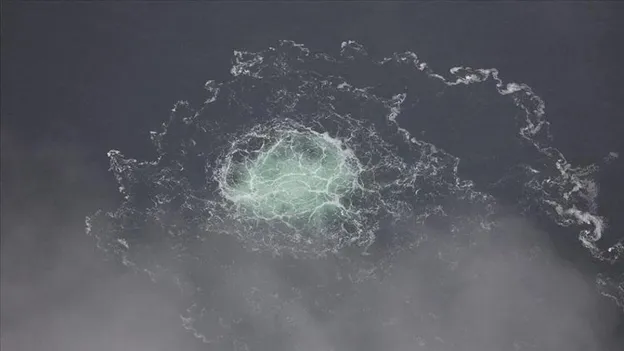
Methane Leakage from Nord Stream Threatens Baltic Sea Ecosystems

baltic sea - Recent research shows that methane leakage from the Nord Stream pipelines in the Baltic Sea has spread to more than 20 marine protected areas, impacting the ecosystem.
A recent methane gas leak from the Nord Stream pipelines in the Baltic Sea has caused concerns as it has spread to a large part of the sea. According to a new study, more than 20 marine protected areas in the region have been affected by the leakage. Researchers from the University of Gothenburg and the research center 'Voice of the Ocean' used underwater robots to measure methane concentration levels in the area where the leaks from the pipelines carrying Russian natural gas to Europe have spread.
Studies have shown that the majority of methane gas leaking from the pipelines has risen to the sea surface and atmosphere, while some of it has remained underwater and dispersed in the Baltic Sea through ocean currents.
Scientists have revealed that during the initial period following the pipeline explosion in September 2022, methane levels in the Baltic waters were about 1000 times higher than normal.
Martin Mohrmann, a scientist at 'Voice of the Ocean,' stated that based on the measurements, methane gas has spread extensively from the southern Baltic Sea, from the eastern coast of Denmark's Zealand to the Gulf of Gdansk in Poland.
He also mentioned, "We estimate that more than 14% of the entire Baltic Sea has been exposed to methane levels at least 5 times higher than normal."
Researchers have created a model based on the measurements to understand how methane is distributed in the Baltic Sea and where it reaches. They found that ocean currents transport the gas to 23 different marine protected areas, designated to preserve marine ecosystems, biodiversity, and natural resources.
Bastien Queste from the Department of Marine Sciences at the University of Gothenburg highlighted that the areas negatively impacted by methane emissions can easily be identified using the model, facilitating intervention in any future issues affecting Baltic Sea ecosystems.
The details of the study were published in the journal 'Nature'.


Leave a comment